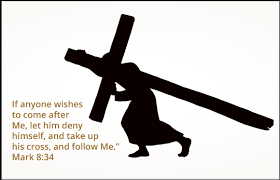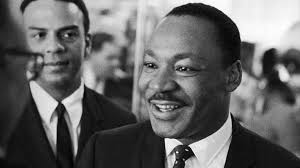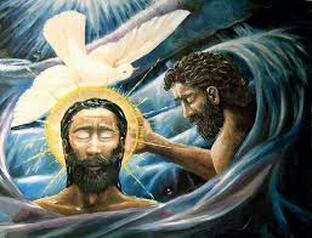
Matthew 4:12-23,
January 26, 2020
When I first moved to Manhattan to attend Union Theological Seminary, I was smitten by the neighborhood of Morningside Heights: filled with academic institutions it felt like a college town in the middle of the big city. Imagine my shock when a friend expressed her fear of visiting me. “I never go above 96th Street,” she said, recalling a time when those blocks beyond 96th street had a reputation to be dangerous and crime ridden. What a change crossing a street can make. Current statistics indicate that the overall crime rate in Morningside Heights is 29% lower than the national average. Morningside Heights is safer than 67% of the cities in the New York. A big change from my friend’s days.
Geography is important. We are shaped by places. The philosopher José Ortega y Gassett once said, “Tell me the landscape in which you live, and I will tell you who you are.” Most of us sense the truth of that. New York City and Washington DC are both places of power but Washington DC stands for a political power that captivates the entire country. Us New Yorkers would boast New York City the capital of the world! So, our values and outlook on the world are shaped where we are brought up: on the farm or rural countryside, a city, or in the suburbs or a grand metropolis.
Place matters. In the gospels we often forget all this. We shouldn’t, because in the stories of Jesus, place is important. We are reminded that it was important for Jesus too. And not just because Jesus, as a real human person, always had to be somewhere. But there is more theology involved in locale than we sometimes realize. Our gospel lesson today is a good example.
No sooner does Jesus hear about John’s arrest, he high-tails it north some eighty miles to Galilee. Jesus then moves out of his backwater hometown of Nazareth and settles in at a place called Capernaum on the northern shore of the Sea of Galilee. In other words, eighty miles may not sound like much to those of us accustomed to driving 70 miles an hour, but in a day when nothing moved faster than a donkey could plod, eighty miles was quite far indeed. Jesus has taken himself very far away from Jerusalem, from Judea, and from all things powerful and religious. It seems like an unusual decision at just the beginning his ministry. Why not start in the religious center of the nation, where one is more likely to get an ear of the influential and powerful? Jesus turns this down. Instead Jesus heads north, and made his home and the beginning, the hub of his ministry, at Capernaum by the sea.
Hard on the heels of his baptism by John and his wilderness temptations, Jesus preaches his first sermon. He does this right after he hears that John has been arrested. Jesus picks right up where John left off. As Matthew reports it in 4:17, Jesus’ first sermon is a word-for-word repetition of John the Baptist’s sermon from Matthew 3:2. On one level it is good to see Jesus affirming the ministry of John, telling people what John told them: “Turn around, change your life: the kingdom of heaven is coming!” But that’s what John said. Shouldn’t Jesus say something more? John said the kingdom of heaven was near. Well, with Jesus on the scene shouldn’t he say, “The kingdom of heaven is not just near it is now here!”? But no, Jesus echoes John: it’s near, so get ready. That’s the first surprise about Jesus’ inaugural sermon: it’s just a knock-off of John the Baptist’s work. He affirms John. But the second surprise is even bigger: namely, the locale Jesus was in when he gave the sermon. Jesus doesn’t give his first public speech in Jerusalem or the Judean wilderness near where John was. The location for this sermon is in Capernaun in Galilee by the sea.
So surprising is this shift in geography that Matthew feels the need to bring in a prophetic voice like Isaiah to re-assure his readers that this move is appropriate. Matthew was right: Isaiah did associate God’s promised One with Galilee. But even those familiar with Isaiah did not necessarily think this is where the Messiah would begin his work! Matthew 4:13 quotes Isaiah and gives insight about how the people of this small City accepted the Messiah. The passage reads, “O land of Zebulum, O land of Napthali, the way to the sea, across the Jordan, Galilee of the Gentiles! The people who dwelt in darkness saw a great light, and upon those who dwelled in the country and in the midst of the shadow of death, light shone.” Maybe God could grandfather in the outlying regions once Jerusalem was taken care of, but to start out in the sticks?! It did not look like a logical choice.
Actually, Capernaum was a good location for Jesus to choose. Its name meant “Place of Comfort.” It was a hard-working city with a strong fishing and farming industry so Jesus would find people who understood the simple things in life and faith. It had a large Jewish population but unlike the Jewish community in Nazareth this community was open to new and fresh ideas. The Gospels record twelve miracles in Capernaum, more than anywhere else in the Holy Land. Capernaum is mentioned 16 times, one of the most prominent locations in Jesus’ life. It was his home and a major location of Jesus’ ministry.
The population of Capernaum was highly stratified: fishermen, farmers, artisans, merchants, publicans etc. They all lived in the same village, but apparently without any strident economic inequality. Even the relations between the inhabitants of Capernaum and the Romans were surprisingly cordial. For example, it was a Roman centurion who built the synagogue for the Jewish community, while the elders of the village reciprocated in kindness and pleaded earnestly with Jesus asking him to heal the centurion's servant (Lk 7:1-10). Jesus chose many of his apostles either among fishermen (Peter, Andrew, James, John - Mt 4:12-22) or publicans (Matthew - Mk 2:13). So, Capernaum became his home. Capernaum became the place where he first preached and where he chose his first disciples proclaiming, they would become fishers of people.
Despite the importance of location, interestingly, to most people, it matters little where this or that gospel event took place. One locale is as good as the next–it’s all the Holy Land, after all. Jericho or Jerusalem, Capernaum or Bethsaida: the places matter little compared to the presence of Jesus in those places. Unless we are actually in Israel on a tour group, we are typically interested in what Jesus said, not where he said it. In fact, if we gave the average congregation a quiz on gospel geography, even those who are quite biblically literate would not do too well. “Where did Jesus meet Zacchaeus?” “Where was it that Peter confessed Jesus as the Christ?” Many folks, off the top of their heads, wouldn’t have a clue – and might not even matter. So why does place matter?
Jesus makes a point to proclaim the nearness of the kingdom in his first sermon. Jesus has come to this world for the sake of this world–for all of it. There are no unimportant places, but there had to be a starting point. Ultimately the whole world needs Jesus, and so Jesus begins by making a foray into the wider world. But he begins with a home, a home in a place of comfort and not of power. Home is where we begin, as we too are called out into the world as disciples.
Place matters. We have a spiritual home here at Merrick Church. It is a home that calls us to engage in worship. It is a place where we are called to be and learn to be fishers of people It is a home where we are called to commit ourselves into a spiritual family and to support one another to grow in faith. It is a home where we call others and support them into fellowship.
Place matters. Every place. Every person in every place. Because in the end the “Holy Land” is not over in Israel: however, every place where the Spirit comes into our heart is holy ground. Where we live and choose to work matters to God. Our goal should be to keep proclaiming and living out the kingdom until the knowledge of God, the justice and righteousness of God, covers the earth the way the waters cover the seas. For then it will indeed we can proclaim, “The earth is the Lord’s and all who live on it.” And in there we shall find our home. Amen
https://www.areavibes.com/new+york-ny/morningside+heights/crime/
See more at: http://cep.calvinseminary.edu/sermon-starters/epiphany-3a/?type=the_lectionary_gospel#sthash.zG3cbErd.dpuf


 RSS Feed
RSS Feed